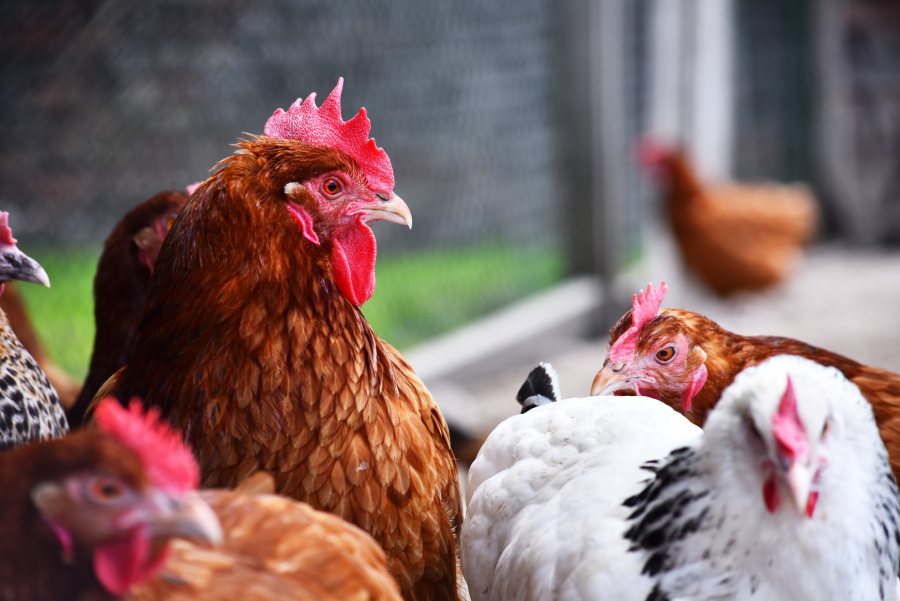
The government has lifted the Avian Influenza Prevention Zone (AIPZ) for poultry and captive birds, introduced to help stop the spread of bird flu.
The risk of avian influenza has now reduced to 'low' for all poultry, the government confirmed on Tuesday (4 July).
The AIPZ, which consisted of enhanced biosecurity measures, was brought in across Britain in October 2022 when there was a medium risk for farms.
The measures were seen as vital in protecting flocks across the country from the virus, which is still circulating in wild birds.
The 2021-2023 bird flu outbreak has been the UK's worst and longest ever recorded, with over 330 cases confirmed across the country.
Today's lifting of the AIPZ comes after Defra ended the UK's mandatory poultry housing order in April, which was introduced last year.
Despite the easing of the rules, poultry farmers and bird keepers have been asked to continue good biosecurity practice and to be vigilant for signs of disease.
Just in the past few days, two cases of highly-pathogenic bird flu was confirmed in Cumbria and West Sussex, in poultry and captive birds respectively.
Dr Christine Middlemiss, the UK’s Chief Veterinary Officer, said: “Now we are in the summer months and the risk to poultry across Great Britain has reduced, it is the right time to lift the Avian Influenza Prevention Zone.
“This would not have been possible without the hard work of all bird keepers, who have upheld high biosecurity standards for many months.
"However, there are still localised areas of risk as we have seen recently, and therefore it’s vital that everyone keeps biosecurity and cleanliness at the forefront of their minds to keep their flocks safe.”
All poultry gatherings, including at fairs, shows and markets, remain banned, due to a large number of flocks mixing together and the risk posed by any infections spreading across the country.
What is the latest advice to poultry keepers?
The government calls on all bird keepers to keep a close watch on poultry and captive birds for signs of disease, while maintaining good biosecurity at all times.
If you have any concerns about the health of your birds, seek prompt advice from your vet.
All bird keepers (whether they are pet birds, a commercial farm or just a few birds in a backyard flock) can remain vigilant and help prevent avian influenza by:
• Cleansing and disinfecting clothing, footwear, equipment and vehicles before and after contact with poultry and captive birds – if practical, use disposable protective clothing
• Reducing the movement of people, vehicles or equipment to and from areas where poultry and captive birds are kept, to minimise contamination from manure, Slurry and other products, and use effective vermin control
• Thoroughly cleansing and disinfecting housing on a continuous basis
• Keep fresh disinfectant at the right concentration at all farm and poultry housing entry and exit points
• Minimise direct and indirect contact between poultry and captive birds and wild birds, including making sure all feed and water is not accessible to wild birds
